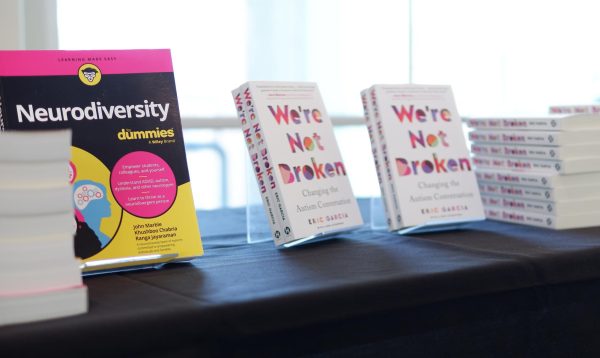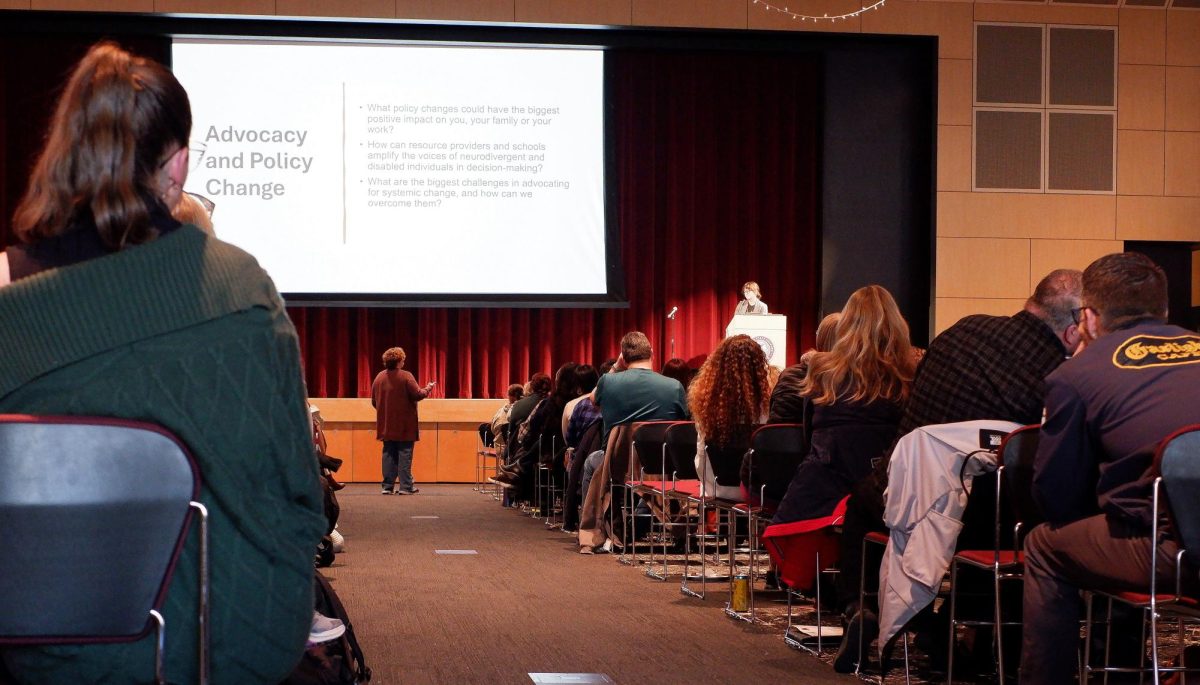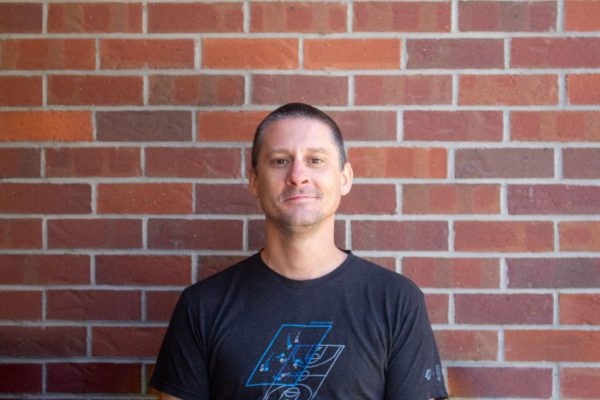Around 500 educators, medical and mental health professionals, advocates, parents and neurodivergent and disabled individuals filled the BMU auditorium Friday for the Northern California Neurodiversity and Disability Symposium.
The daylong event brought professionals from around the country to Chico State. Many of the presentations involved engaging the group in discussion, as a thread of focus throughout the event was how to continue to move the narrative forward in an inclusive manner.
The symposium began with an inspiring video of Chico State students’ testimonials on how the school has helped empower them to achieve success in their educational process.
Josie Blagrave is the director of the Autism Clinic at Chico State and an associate professor in the Department of Kinesiology. She co-founded the Neurodiversity and Disability Symposium in 2018 to bring the discussion to families in the region for whom traveling to different events was often not feasible.
She noted that neurodiverse and disabled people still suffer from low sense of belonging, low retention rates, co-occurring health issues, higher suicide rates and low employment and work satisfaction rates. She said she hopes to see Chico State help lead the way among institutes of higher education in serving students, employees and the greater community.
Disabled and neurodivergent artist, designer and educator Jennifer White-Johnson opened the symposium with energy and exuberance as the first keynote speaker. She grew up during a time when disabilities were more stigmatized, and her neurodivergence went undiagnosed as a child.
As she came to terms with her later diagnosis, White-Johnson said she wanted to combine her art with her newfound perspective on neurodiversity. Much of her work is centered around recognizing the beauty and positivity of the lives autistic and disabled people live.
“Joy is often left out of the conversation,” White-Johnson said. She has a son on the autism spectrum, and she spoke of “mothering as an act of resistance” and how all forms of activism can serve to help society move on from a tradition of ableist culture.
White-Johnson also led a zine making workshop based on her anti-ableist manifesto. She is well known for her zine “Knox Rox,” a photographic collection spanning six years of her son’s life.
“It’s a simple artistic expression examining the light and love a child can bring if you sit, look, and listen!” It is meant “to increase visibility of black/brown kids in the autism and neurodiverse communities,” according to White-Johnson’s webpage.
In the afternoon, Blagrave led a discussion regarding remaining barriers to service, under-served populations and unmet needs. Attendees spoke of a lack of services in rural areas, faculty understanding how to accommodate students, the lack of transitional programs, wait-lists for services, difficulty receiving official diagnoses and a need to expand community awareness, among several other issues.
The other presenters included Alex Plank, who spoke about “Authenticity and Inclusion in Hollywood” and his time working on the film Ezra as a producer, actor and neurodiversity consultant. Dr. Blake Warner gave a presentation titled “Teaching the Taboo: Inclusive Sex Education Tools for Parents and Providers.”
John Marble, author of “Neurodiversity for Dummies,” gave a talk concerning normalizing the conversation around neurodiversity. Dr. Marjorie Solomon presented regarding the challenge of low employment rates of adults with autism, and what can be done to mitigate and solve the issue.

Eric Garcia gave the keynote address that finalized the event. He is the senior Washington correspondent for The Independent, columnist for MSNBC and author of “We’re Not Broken: Changing the Autism Conversation.”
Garcia spoke of how excluding people with autism from discussions about autism continues to harm them. He addressed the thoroughly debunked idea that vaccines cause autism, as well as the persistence of misinformation driven by social media. He noted the need to start treating people with disabilities and neurodivergent individuals as we should treat anyone else, like a human with so much potential.
“We all need to presume competence, no matter how someone has to communicate,” Garcia said.
After speaking, he fielded many questions and comments from the crowd until they had seemingly exhausted everything they could come up with.
Throughout the event, all attendees were empowered to approach the microphone and share their experiences, questions and hopes for the future, at whatever pace and in whatever manner they felt most comfortable.
Regarding the future of services at Chico State, Dr. Blagrave said that the greatest challenge moving forward would be funding. She is interested in starting a cohort of neurodiverse and disabled students who have been accepted into Chico State that might need extra support to be successful, just like many of the other groups represented on campus.
“Administration cares and sees that there is a need, and being able to convert that need into dollars that come back to campus because of retention, I see that story as one of the bigger challenges,” Blagrave said. “And I think that we could be at the forefront of that on this campus, but it takes a push and we’re at that push point.”
The Accessibility Resource Center is the first place to go for any student who is currently struggling or feels like they may need some assistance.
Sean Shanks can be reached at orionmangingeditor@gmail.com








